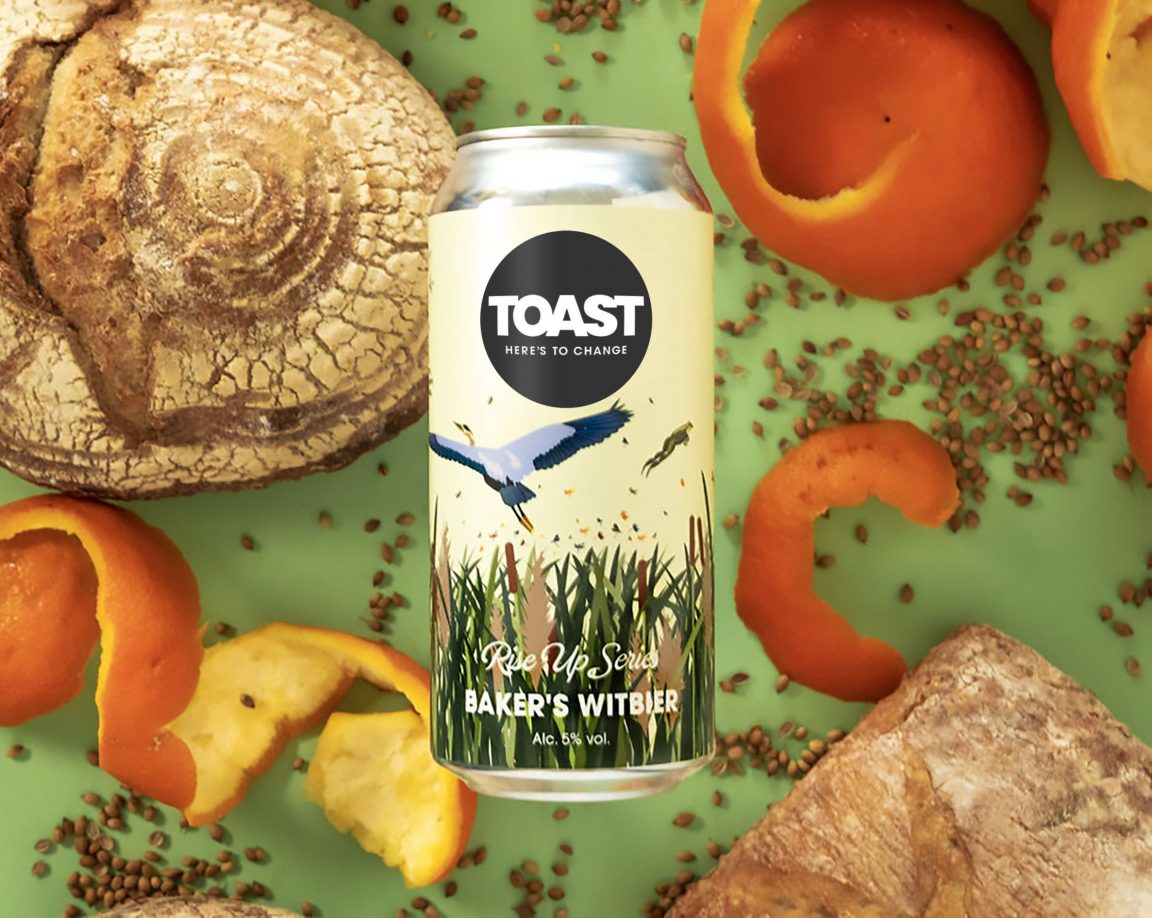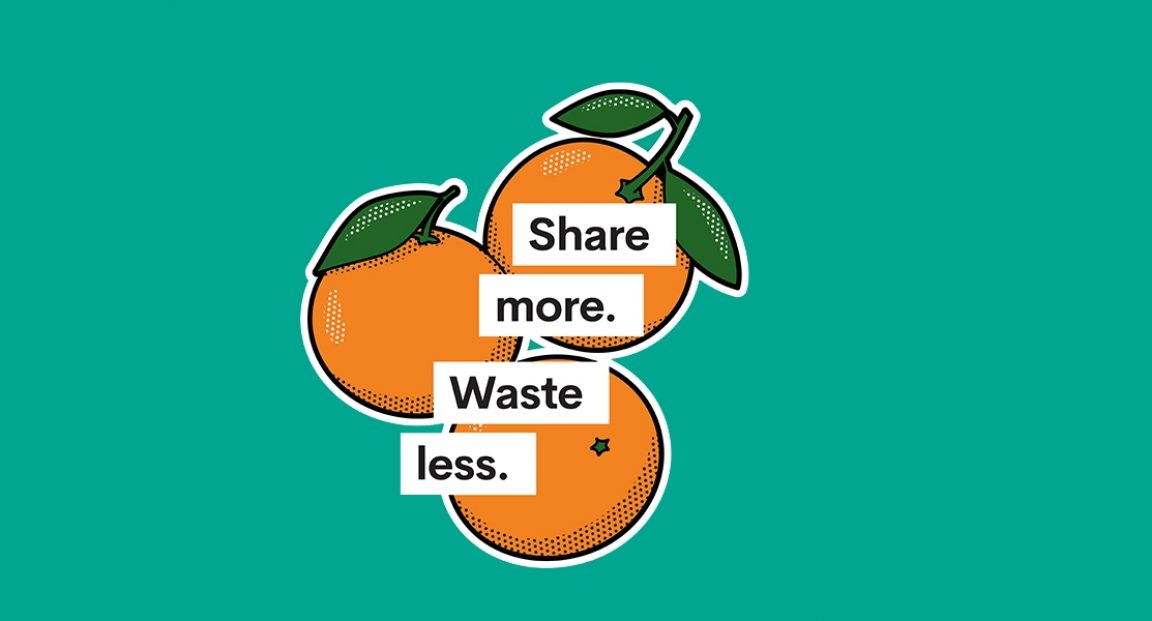Pandemic drives British brands to help consumers cut food waste
It’s hard to find positives amidst a global pandemic but if ever there was one, it’s that Britons have become increasingly mindful of the impact of food waste. As a sense of scarcity drives people to adopt ‘food smart’ habits, there’s a new opportunity for brands to emotionally bond with consumers on a subject they really care about. From boutique brands to large institutions like Unilever, the last year has seen a rise in businesses taking new initiatives to tap into the food waste market and resonate with consumers through food-saving products, services and education.
According to a survey1 by the Waste and Resources Action Programme (WRAP), 37% of people say they’re increasingly making meals from random ingredients, 30% are saving leftovers for the next day, and 47% check what’s in their cupboards before going to the shops. Plus, 43% of adults2 in the UK say they’re eating and cooking at home more than before Covid-19.
However, one third of food produced for human consumption is still wasted and 900 million tonnes is thrown away every year, with more than 40% of this waste occurring in the home. Despite the rising consumer concerns around food waste, there is still a knowledge gap, with people not always being sure of the best ways to reduce waste. “Food waste reduction is a pivotal space in which brands can play a positive, practical and emotional role in consumer’s lives…” says Andy Brattle, Director at Beyond, partner agency to Feel-Good Brands.
So which brands are already tapping into the market to help consumers reduce food waste and how are they doing it?
“Tackling food waste is a triple win. It’s good for people, for the planet and it’s good for business.” — Christina, Bauer-Plank, Global Brand Vice President of Hellman’s.
Unilever | product innovation
This year Unilever outlined ambitious plans to halve food waste by 2025 as part of its wider social and environmental ambitions. “Tackling food waste is a triple win – it’s good for people, for the planet and it’s good for business” says Christina, Bauer-Plank, Global Brand Vice President of Hellman’s.
Amongst improving the farm to shelf journey, educating suppliers and committing to reusable, recyclable and compostable packaging, Hellman’s ‘Easy-out technology’ is just one small example of the cooperation’s large efforts to reduce food waste.
How many times do you shake a Hellman’s Mayonnaise squeezable bottle before you give up on the last dregs? Inspired by an understanding of consumer interactions with the product, the new easy-out technology coats the bottle with vegetable oil so that almost every bit of mayonnaise flows out easily. Where this technology has been trialled so far, it has resulted in a 25% reduction in waste. Genius!
Toast Ale | brand collaboration
‘Raise a Toast. Save the World. Cheers!’
Toast Ale has been in the business of tackling food waste since it was founded in 2015. By transforming leftover bakery bread into beer, it saves tonnes of CO2 from entering the atmosphere whilst also using less land and water than conventional beer companies. Not only this, but it also donates all profits to charity to fund changes that will help to create a fairer and less wasteful food system.
“Your label is one of the best assets you have. Consumers take around 5-7 seconds to make a purchase decision in store, so the label serves to capture the attention of shoppers as well as provide useful information regarding the product." — Paul, Creative Director, Beyond.
In its latest ‘Rise Up’ campaign, aimed at raising awareness of the global food system in the lead up to the 2021 UN Climate Change Conference, the B Corp beer brand is releasing a series of limited-edition beers. Brewed in collaboration with B Corp brands Divine Chocolate, teapigs, Hobbs House Bakery, ODDBOX, Rebel Kitchen, Rubies in the Rubble and Cafédirect. From Rise Up for Forests with Divine Chocolate to Rise Up for Rivers with Hobbs House Bakery, each campaign beer label highlights a different element of the ecological crisis and the systemic change needed in our food system to tackle climate change and biodiversity loss. The campaign website and brand social media accounts also asks consumers to take action by supporting other B Corps, reducing waste and even writing to your local MP.
COOK | acts of kindness
Prepared food brand COOK is a nourishing B Corp business, setting high standards for social and environmental performance, accountability and transparency. From using 100% renewable electricity in its shops and kitchens to helping people into work after prison or homelessness, COOK really does use business as a force for good.
In 2016 COOK installed an end-to-end food waste system which captures and stores food waste from its kitchens. The food waste is then collected to be turned into a nutrient rich bio-fertilizer for farming and renewable energy that is exported to the National Grid.
During the height of the pandemic COOK put aside free meals in its shops for customers looking after vulnerable neighbours. These Random Acts of Kindness grew into the COOK Kindness Fund, which is now a permanent part of its work. As of March 2021, it had given away over 200,000 meals working with hospitals, care homes, food banks and local community groups to help those struggling due to the Covid-19 crisis.
Through innovation, care for its community and a true commitment to improving its social and environmental impact, COOK has a strong bond with its customers across the UK, which only continues to increase. You can hear more about COOK’s initiatives with James Rutter – Chief Creative Officer in the Brand Talks podcast.
OLIO | community advocacy
OLIO is an app-driven, food-sharing venture. The brand is reducing waste by encouraging people and businesses to exchange surplus food, books and clothes. To date, more than two million people have downloaded the app, and upwards of five million food portions of food have been exchanged.
Before embarking on building an app, co-founders Tessa Clarke and Saasha Celestial-One decided to trial the concept via Whatsapp first. After completing a market survey, they invited 12 people, who had expressed their concern about food waste to a closed Whatsapp group, and asked them to share surplus food among each other for 2 weeks. It was a huge success and so the OLIO app was born! Central to its success, the business has continued to keep community at its core.





